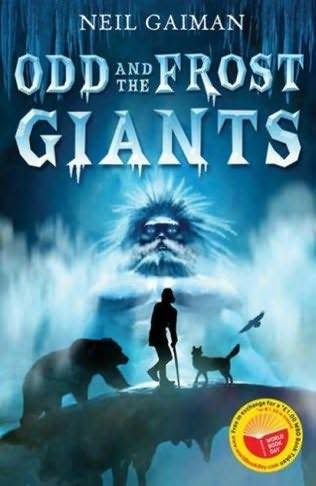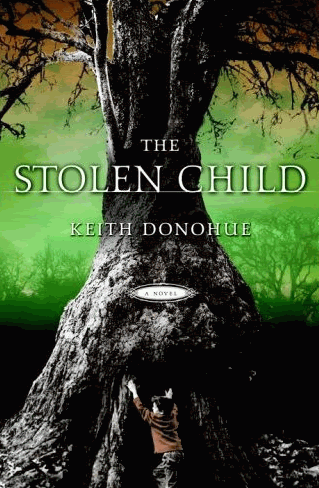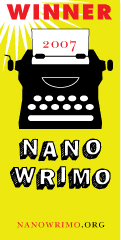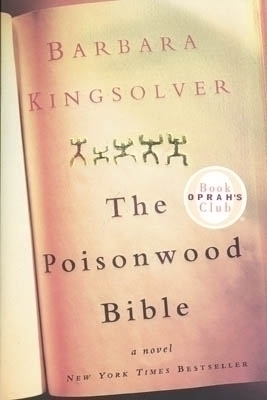Saturday, March 22, 2008
Faster than a Speeding Bullet Reviews: Ratatouille
Ratatouille is a decent movie. Some reviewers compare the film to a good dish, but since I know nothing about food, I just eat it to live, it is fortunate that this film is accessible to those unfamiliar with the culinary lingo. Since this is a film made by Disney/Pixar, it's not surprising why this is. Though what is surprising is the sophistication of the film, adults will probably enjoy it on a much more developed level than kids will.
It's not sickeningly cute either. Some elements of the film are very dark, darker than most Pixar films: the link between Humans and rat traps/poison represented would be a bit of a shock to kids expecting the whole film to be a simple talking cute animal flick. Yes, the film is about a talking rat, but there are some very real dangers and hazards presented by Remy's quest to transcend his position as a rat in order to cook.
The ending isn't too sappy either. You think they're going to get away with locking the ex-chef and health inspector in the larder, but hey, everything works out, even though the result of rats in the kitchen is clearly represented as a downer for reputation once brought to the open. The love story is far less sappy and more believable than most Disney film romance subplots are too, the female cook love interest is no doormat, if she's unhappy, she will let the main man know it. Score one for realistic relationships, no wilting here, just a sweetness that isn't too sugary.
You don't have to be a connoisseur of fine food to enjoy this film, but after seeing this you may well want to become one. I give it Five Stars out of Five.
It's not sickeningly cute either. Some elements of the film are very dark, darker than most Pixar films: the link between Humans and rat traps/poison represented would be a bit of a shock to kids expecting the whole film to be a simple talking cute animal flick. Yes, the film is about a talking rat, but there are some very real dangers and hazards presented by Remy's quest to transcend his position as a rat in order to cook.
The ending isn't too sappy either. You think they're going to get away with locking the ex-chef and health inspector in the larder, but hey, everything works out, even though the result of rats in the kitchen is clearly represented as a downer for reputation once brought to the open. The love story is far less sappy and more believable than most Disney film romance subplots are too, the female cook love interest is no doormat, if she's unhappy, she will let the main man know it. Score one for realistic relationships, no wilting here, just a sweetness that isn't too sugary.
You don't have to be a connoisseur of fine food to enjoy this film, but after seeing this you may well want to become one. I give it Five Stars out of Five.
Monday, March 17, 2008
Handheld Games I Loved and Cherished
I like handheld games a lot better than TV plug in console ones because of the way I can not only cart them around with me, but they're also easier to use for my motor skills challenged hands. For years, I struggled with playing video games, until I discovered a little game for the Game Boy called Pokemon Red and Blue. Then my brother got a Game Boy Colour, and from there I loved handhelds.
Not just Game Boy handheld games either. Never forget that my youth in the 1990s heralded many handheld innovations. Like the Tamagotchi. (Or however you spell it).
Tamagotchis as well as the highly popular Digimon, as I remember it, were a highly enjoyable subgenre of handheld game called the "Virtual Pet" craze. Let me put this into context. Many kids I knew when I was in primary school were not allowed to have pets in their house, so they turned to virtual alternatives to prove they could at least keep something alive for more than a week. Parents missed the point of these things, and thus disregarded their offspring's attempts at responsible pet ownership through a video game, when they were denied a pet of their own in real life.
Also available was the Pocket Pikachu, which could interact with your Game Boy Pokemon games in some way I can't remember. Digimon virtual pets could battle each other, and successive versions of the Digimon were more powerful than the ones that came before it, so, a generation began to consume electronics like no other generation before.
But back to the Game Boy. When I was a kid these things were status symbols, and those who did not have one looked on as the lucky bastard who had enough money to own both versions of the original Pokemon played on a small screen. Not that we got teased if we didn't have one of course. Smarter, and more compassionate kids, realised that if he was going to trade Pokemon he would need more friends who had Game Boys to trade and battle with. So by letting other children watch him play the game, a chap could influence his friends to get one for their birthday or Christmas.
I didn't actually own a Pokemon game until Pokemon Crystal came out, because my parents didn't spoil me and my brother very much. This meant we appreciated our electronics more. Pokemon waned in popularity as kids like us grew older, turning to other non-computer game entertainments such as DragonBall Z for our morning cartoons. But that didn't mean handhelds went away with it. And those who have been following gaming will know that Pokemon is making a comeback (God forbid).
But what came next? What would fill the void of handheld gaming after the Game Boy Colour? In a gaming magazine one day I discovered it: The Game Boy Advanced. Now this was particularly interesting. The screen was bigger, and it had L and R buttons on it for some reason. It also had quite a few games which appealed to older gamers who had long since given up "catching them all" with Pokemon games. Stuff like Advance Wars, and Fire Emblem. The occasional RPG was made for it. Golden Sun remains one of my favorite RPGs, though I never finished it, I'm sad to say. And just before you thought you'd never see another Pokemon game again, they made more Pokemon games for the GBA, with more features than before. Really it was getting silly. But for some reason, even young men in their middle teens still played these new Pokemon offerings. They played those while I was busy farming on Harvest Moon: Friends of Mineral Town.
And it got even more ridiculous. The Game Boy Advanced SP came out with a backlit screen, because people complained that the original Game Boy Advanced had a screen that was too dark, and you had to buy a light accessory to see the damned game you were playing. I never owned a SP for good reason. I liked the design of the original GBA and I wasn't going to shell out 200 bucks for a new system when I could easily buy more games for that much money.
This was long before DS Lites and PlayStation Portables and what have you. So back then, 2D graphics on a handheld was impressive. But my generation should always remember we came from the dark ages (in some cases literally, like the GBA Screen) of consumer electronics to see the innovations of the future. Kurt Cobain never saw a PSP, Alec Guinness never played a DS Lite. If you live longer than both these people and yet still see the wonders of technology advancing, you should be even more grateful for that.
Not just Game Boy handheld games either. Never forget that my youth in the 1990s heralded many handheld innovations. Like the Tamagotchi. (Or however you spell it).
Tamagotchis as well as the highly popular Digimon, as I remember it, were a highly enjoyable subgenre of handheld game called the "Virtual Pet" craze. Let me put this into context. Many kids I knew when I was in primary school were not allowed to have pets in their house, so they turned to virtual alternatives to prove they could at least keep something alive for more than a week. Parents missed the point of these things, and thus disregarded their offspring's attempts at responsible pet ownership through a video game, when they were denied a pet of their own in real life.
Also available was the Pocket Pikachu, which could interact with your Game Boy Pokemon games in some way I can't remember. Digimon virtual pets could battle each other, and successive versions of the Digimon were more powerful than the ones that came before it, so, a generation began to consume electronics like no other generation before.
But back to the Game Boy. When I was a kid these things were status symbols, and those who did not have one looked on as the lucky bastard who had enough money to own both versions of the original Pokemon played on a small screen. Not that we got teased if we didn't have one of course. Smarter, and more compassionate kids, realised that if he was going to trade Pokemon he would need more friends who had Game Boys to trade and battle with. So by letting other children watch him play the game, a chap could influence his friends to get one for their birthday or Christmas.
I didn't actually own a Pokemon game until Pokemon Crystal came out, because my parents didn't spoil me and my brother very much. This meant we appreciated our electronics more. Pokemon waned in popularity as kids like us grew older, turning to other non-computer game entertainments such as DragonBall Z for our morning cartoons. But that didn't mean handhelds went away with it. And those who have been following gaming will know that Pokemon is making a comeback (God forbid).
But what came next? What would fill the void of handheld gaming after the Game Boy Colour? In a gaming magazine one day I discovered it: The Game Boy Advanced. Now this was particularly interesting. The screen was bigger, and it had L and R buttons on it for some reason. It also had quite a few games which appealed to older gamers who had long since given up "catching them all" with Pokemon games. Stuff like Advance Wars, and Fire Emblem. The occasional RPG was made for it. Golden Sun remains one of my favorite RPGs, though I never finished it, I'm sad to say. And just before you thought you'd never see another Pokemon game again, they made more Pokemon games for the GBA, with more features than before. Really it was getting silly. But for some reason, even young men in their middle teens still played these new Pokemon offerings. They played those while I was busy farming on Harvest Moon: Friends of Mineral Town.
And it got even more ridiculous. The Game Boy Advanced SP came out with a backlit screen, because people complained that the original Game Boy Advanced had a screen that was too dark, and you had to buy a light accessory to see the damned game you were playing. I never owned a SP for good reason. I liked the design of the original GBA and I wasn't going to shell out 200 bucks for a new system when I could easily buy more games for that much money.
This was long before DS Lites and PlayStation Portables and what have you. So back then, 2D graphics on a handheld was impressive. But my generation should always remember we came from the dark ages (in some cases literally, like the GBA Screen) of consumer electronics to see the innovations of the future. Kurt Cobain never saw a PSP, Alec Guinness never played a DS Lite. If you live longer than both these people and yet still see the wonders of technology advancing, you should be even more grateful for that.
Sunday, March 16, 2008
Matters Concerning my Encounter with Germaine Greer
Oh man. I've posted controversial blog entries before, but nothing I have previously posted can compare to the sheer provocativeness you are about to read...
This, is Germaine Greer:

And I went to the NSW Teacher's Conference Center book talk (organised by Gleebooks) to see what she had to say.
Her lecture was good. She had some original concepts to grapple with, her new book Shakespeare's Wife sounds interesting, and her side topics she talked about were as relevant as ever.
But quite a few things angered me somewhat about Greer when I stepped up to ask a question at Q & A, she said that "I will only let a woman ask the first question, not a man" (there was one man in front of me at the time), before remarking "And certainly not a BOY!".
I was the only young man my age there. Because I was a young man she referred to me as a "BOY!", which is rather insulting in itself, but more so was her remark that "You look like you're up to mischief" when I attempted to ask the question "What would you say to a young man who wants to repair the sad and sorry state of his gender, when all we have to look to for inspiration is Fight Club?"
She then said "You look to me like you are a conscientious eccentric", and "Do you really only have Fight Club to look to for inspiration?" as she raised her eyebrow. Because I was too intimidated to answer, she claimed "You seem to also want to take up as much time as possible, next question", before even answering my question properly.
She just didn't take me seriously. Not only because of my gender, but because of my age. Greer refers to Cambridge Dons who won't agree with women's intellectual life as "schoolboys". This is particularly telling, since it appears she thinks schoolboys lack the ability to do more than cause trouble at intellectual events, and the ability to have a rich intellectual life at all.
I was singled out for being a young man, because I was the only young man my age there. If I was older I might have been taken seriously, but I doubt it.
Makes you wonder whether this women's liberation supporter believes men deserve equality as well, doesn't it?
This, is Germaine Greer:

And I went to the NSW Teacher's Conference Center book talk (organised by Gleebooks) to see what she had to say.
Her lecture was good. She had some original concepts to grapple with, her new book Shakespeare's Wife sounds interesting, and her side topics she talked about were as relevant as ever.
But quite a few things angered me somewhat about Greer when I stepped up to ask a question at Q & A, she said that "I will only let a woman ask the first question, not a man" (there was one man in front of me at the time), before remarking "And certainly not a BOY!".
I was the only young man my age there. Because I was a young man she referred to me as a "BOY!", which is rather insulting in itself, but more so was her remark that "You look like you're up to mischief" when I attempted to ask the question "What would you say to a young man who wants to repair the sad and sorry state of his gender, when all we have to look to for inspiration is Fight Club?"
She then said "You look to me like you are a conscientious eccentric", and "Do you really only have Fight Club to look to for inspiration?" as she raised her eyebrow. Because I was too intimidated to answer, she claimed "You seem to also want to take up as much time as possible, next question", before even answering my question properly.
She just didn't take me seriously. Not only because of my gender, but because of my age. Greer refers to Cambridge Dons who won't agree with women's intellectual life as "schoolboys". This is particularly telling, since it appears she thinks schoolboys lack the ability to do more than cause trouble at intellectual events, and the ability to have a rich intellectual life at all.
I was singled out for being a young man, because I was the only young man my age there. If I was older I might have been taken seriously, but I doubt it.
Makes you wonder whether this women's liberation supporter believes men deserve equality as well, doesn't it?
Wednesday, March 12, 2008
My Bone to Pick with "Breakfast at Tiffany's"

Audrey Hepburn may be remembered as the classiest women of all time, but that aside, as far as I remember, she plays a pretty annoying character in Breakfast At Tiffany's.
And don't say I hate romantic movies because I'm a man. That's just stereotyping. The reason why I didn't like Breakfast at Tiffany's was because having seen Audrey Hepburn in My Fair Lady previously, I expected far less gold-digging behaviour on Audrey's part in a movie with her in it.
Make no mistake, she acts well and is pretty, and talented too, but to me the fault may not be with Hepburn but with the role she plays.
It's a very hard to understand movie for a young man. I could barely figure out what was going on most of the time, apart from the Cat and the stereotypical angry Japanese dude played by Mickey Rooney. Audrey Hepburn may have been made famous by this movie, but for some reason I didn't like it. There's probably a lot of undertones my innocent mind of 18 years raised as a gentleman missed, but that's not the only thing I found annoying. The writer dude who courts Holly (Hepburn's character) assumes that he "owns" Holly because he loves her. This smacks of patriarchal ideology to me. I expected Hepburn to be a stronger female lead in this movie than what actually occurs in the film. And the whole glamour thing is alien to me. Considering I barely spend much money on clothes it's easy to see why this might be the case with my interpretation of the film.
I've probably missed the point of the movie completely, but I expected the story to be clearer and more comprehensible than what I got when I came to see this movie at FilmBuffery Club in school.
Tuesday, March 11, 2008
Two Short Book Reviews: 11th March 2008
I've found some particularly good books to review, and here they are:

Odd and the Frost Giants is the best Neil Gaiman book I've read in years. His children's fiction ranks very highly alongside J.K. Rowling's in quality, yet he has a very different style, using Norse mythology to weave together a heartwarming tale of a crippled boy who sets out on an adventure to Asgard, but not without help. Gaiman makes the historical harshness of Viking lore appropriate for children, not by censoring himself or talking down to his readers, but simply by pointing out just how silly some elements of Norse life were. A good read for little warriors of all ages.

The Stolen Child is a book I mentioned on my Ten Obscure Books You'll Love list that I posted on this blog earlier on, but the book is so good I'll give it another treatment. Two boys, one Changeling who becomes a Human, and one Human who becomes a Changeling, both lead very different lives after they are switched, and nostalgia for the lives they once had is contrasted with the realities of growing up in the real world. Faeries and their place in the real world is threatened by a loss of the old ways, as childhood comes to an end. Hardly a major analysis of a very deep and philosophical Fantasy novel which probably deserves to have more detail examined, but it now sits among my favorite books on my shelf, forever to be cherished as a classic in my eyes.

Odd and the Frost Giants is the best Neil Gaiman book I've read in years. His children's fiction ranks very highly alongside J.K. Rowling's in quality, yet he has a very different style, using Norse mythology to weave together a heartwarming tale of a crippled boy who sets out on an adventure to Asgard, but not without help. Gaiman makes the historical harshness of Viking lore appropriate for children, not by censoring himself or talking down to his readers, but simply by pointing out just how silly some elements of Norse life were. A good read for little warriors of all ages.

The Stolen Child is a book I mentioned on my Ten Obscure Books You'll Love list that I posted on this blog earlier on, but the book is so good I'll give it another treatment. Two boys, one Changeling who becomes a Human, and one Human who becomes a Changeling, both lead very different lives after they are switched, and nostalgia for the lives they once had is contrasted with the realities of growing up in the real world. Faeries and their place in the real world is threatened by a loss of the old ways, as childhood comes to an end. Hardly a major analysis of a very deep and philosophical Fantasy novel which probably deserves to have more detail examined, but it now sits among my favorite books on my shelf, forever to be cherished as a classic in my eyes.
Saturday, March 8, 2008
Something is rotten in Denmark
http://www.smh.com.au/news/world/catalogue-of-complaint-as-ikea-walks-all-over-danes/2008/03/07/1204780065667.html
This is terrible. Reading Fight Club makes you guilty enough about resorting to buy IKEA furniture because you can't afford the fancy stuff.
But this is in a league of its own in cultural insensitivity. I just assembled a big fat BILLY bookshelf from IKEA the very day I read this in the paper. Yet every minute I was in the shop, the specter of the news item was troubling me.
- Jacob Martin
AKA Jake of All Trades
This is terrible. Reading Fight Club makes you guilty enough about resorting to buy IKEA furniture because you can't afford the fancy stuff.
But this is in a league of its own in cultural insensitivity. I just assembled a big fat BILLY bookshelf from IKEA the very day I read this in the paper. Yet every minute I was in the shop, the specter of the news item was troubling me.
- Jacob Martin
AKA Jake of All Trades
Friday, March 7, 2008
Two wrong numbers make a right
I got a new mobile phone. This can only mean one thing: Recycled phone numbers.
Basically, I found out firsthand how wrong a wrong number can get, to have it resolved by a second wrong number call.
The first was an SMS written by a woman who had been dumped by her boyfriend via SMS. When the phone suddenly rang, playing the new Master of Puppets ringtone I had put on it via USB, little did I know that the shock of what I was about to encounter was far greater than the shock of Metallica suddenly blasting from one's pocket at full volume.
After I read this masterpiece of foul-mouthery, this tour de force of threats of bodily harm, I immediately deleted it from my phone. Somehow I regret doing this, but with a curious mother wondering who called me I had to act fast. To put it simply, it was one of the most terrifying experiences of my life.
Then today, some chap called me looking for a bloke called "Luke". I asked him if he or somebody he was calling on behalf of was responsible for the colourful and eyebrow raising text message I recieved yesterday, after I heard the screaming obscenities of a woman in the background.
In this man's despair, he bluntly put it: "Oh... SHIT!".
Before he hung up, I heard the woman scream "FUCKING KID!".
I know this, I probably wouldn't have liked the events that would have happened if I pointed out the text message went to an 18 year old schoolboy. Oh well, the Universe sorts things out in ways you can't imagine.
- Jacob Martin
AKA Jake of All Trades
Basically, I found out firsthand how wrong a wrong number can get, to have it resolved by a second wrong number call.
The first was an SMS written by a woman who had been dumped by her boyfriend via SMS. When the phone suddenly rang, playing the new Master of Puppets ringtone I had put on it via USB, little did I know that the shock of what I was about to encounter was far greater than the shock of Metallica suddenly blasting from one's pocket at full volume.
After I read this masterpiece of foul-mouthery, this tour de force of threats of bodily harm, I immediately deleted it from my phone. Somehow I regret doing this, but with a curious mother wondering who called me I had to act fast. To put it simply, it was one of the most terrifying experiences of my life.
Then today, some chap called me looking for a bloke called "Luke". I asked him if he or somebody he was calling on behalf of was responsible for the colourful and eyebrow raising text message I recieved yesterday, after I heard the screaming obscenities of a woman in the background.
In this man's despair, he bluntly put it: "Oh... SHIT!".
Before he hung up, I heard the woman scream "FUCKING KID!".
I know this, I probably wouldn't have liked the events that would have happened if I pointed out the text message went to an 18 year old schoolboy. Oh well, the Universe sorts things out in ways you can't imagine.
- Jacob Martin
AKA Jake of All Trades
Tuesday, March 4, 2008
Ask not for whom the dice roll, they roll for thee
http://www.journaltimes.com/articles/2008/03/04/local_news/doc47cd95a012996795923538.txt
Gary Gygax is dead. Yes, he created Dungeons and Dragons, and yes, I never knew him in person. But I have played 3.5 edition of D&D and I loved it.
Is it possible to mourn a man's death never having known him in person?
For me, this isn't something everybody will mourn about, like what happened to Heath Ledger's death and subsequent media circus. Gygax will probably not get a fancy funeral (but he deserves one) and most people I know don't even know his name or what he did for the Fantasy genre games market.
I did not know him, but I played some version of the game that he gave life to. It's like how you can love an author having never met them in person, but you know them from the books they wrote. 3.5 edition D&D was not made by Gygax, but if it wasn't for him, D&D would not exist.
Unlike Heath Ledger, there are no suspicious circumstances to his death. He will get no media circus picking his bones. And this enables the right people to mourn his passing, not out of socially acceptable pity, but out of genuine emotion.
This man's contribution to Fantasy inspired me to write in the genre, and develop my research further than the Monster Manual to see where the many legendary beasts came from. I came across the game at a time in my life where my imagination was prepared to be sparked by something, something I could interact with, not a videogame, but a game purely powered by the imagination. And I thank you for the new direction you set my life in, Gygax. Without you I'd still be writing copy-cat LOTR dreck that I was working on in Year 8 High School.
I never knew you, Gygax, but I will still mourn your death, that came not at the hands of a Beholder or some monster like that, but a more mundane slaying from a medical condition. Maybe a Level 20 Necromancer cast a spell on you, I wouldn't be at all surprised. But it's odd, when you contemplate how simple and mundane the deaths of Fantasy writers and guardians of imagination are.
Terry Pratchett got Alzheimer's earlier this year. He's not dead yet, and is still useful, but we must remember that no mortal creator will live forever, and they must be cherished while they live. Gygax, you'll be rolling d20s in heaven, I know you're doing it right now, you lovable old geek-king.
- Jacob Martin
AKA Jake of All Trades
Gary Gygax is dead. Yes, he created Dungeons and Dragons, and yes, I never knew him in person. But I have played 3.5 edition of D&D and I loved it.
Is it possible to mourn a man's death never having known him in person?
For me, this isn't something everybody will mourn about, like what happened to Heath Ledger's death and subsequent media circus. Gygax will probably not get a fancy funeral (but he deserves one) and most people I know don't even know his name or what he did for the Fantasy genre games market.
I did not know him, but I played some version of the game that he gave life to. It's like how you can love an author having never met them in person, but you know them from the books they wrote. 3.5 edition D&D was not made by Gygax, but if it wasn't for him, D&D would not exist.
Unlike Heath Ledger, there are no suspicious circumstances to his death. He will get no media circus picking his bones. And this enables the right people to mourn his passing, not out of socially acceptable pity, but out of genuine emotion.
This man's contribution to Fantasy inspired me to write in the genre, and develop my research further than the Monster Manual to see where the many legendary beasts came from. I came across the game at a time in my life where my imagination was prepared to be sparked by something, something I could interact with, not a videogame, but a game purely powered by the imagination. And I thank you for the new direction you set my life in, Gygax. Without you I'd still be writing copy-cat LOTR dreck that I was working on in Year 8 High School.
I never knew you, Gygax, but I will still mourn your death, that came not at the hands of a Beholder or some monster like that, but a more mundane slaying from a medical condition. Maybe a Level 20 Necromancer cast a spell on you, I wouldn't be at all surprised. But it's odd, when you contemplate how simple and mundane the deaths of Fantasy writers and guardians of imagination are.
Terry Pratchett got Alzheimer's earlier this year. He's not dead yet, and is still useful, but we must remember that no mortal creator will live forever, and they must be cherished while they live. Gygax, you'll be rolling d20s in heaven, I know you're doing it right now, you lovable old geek-king.
- Jacob Martin
AKA Jake of All Trades
Sunday, March 2, 2008
There once was a man named Professor Wilhelm...
And I helped him set up his blog.
He'll be arguing with me over his blog posts occasionally. Consider him the alternative voice of my head. You can find his blog on the Interesting Links and Blogs toolbar.
That is all for now.
He'll be arguing with me over his blog posts occasionally. Consider him the alternative voice of my head. You can find his blog on the Interesting Links and Blogs toolbar.
That is all for now.
10 Obscure Books I Know You'll Love

Sometimes a book looks at you with big puppy dog eyes like the dog in this picture, because it needs to be loved.
You know what I mean. Those old favorites you rescue from second hand bookshops in bulk so you can lend the extra copies to your friends, that they might love the books you love.
I personally have never done this myself, but desperate times call for desperate measures. So I bring you...
Ten Obscure Books I Know You'll Love
10: The Call of Cthulhu and Other Weird Stories by H.P. Lovecraft
Where in Shub-Niggurath's name are the H.P. Lovecraft fans in Australia?
Seriously, there's like, none, where I live. Kinokuniya in the Sydney CBD sells a small collection of Lovecraft paperbacks, yet whenever I see them I know Mr. Lovecraft is weeping in Heaven because Australians don't know who he is, much less read his books. Yes, the racism barrier in some of his stories makes it difficult to enjoy elements of his craft, but we all know the 1920s and 30s were not at all like To Kill A Mockingbird for many Americans. There was the fear of isolation, in a sea of change. The Depression made people unemployed, but also paranoid about anybody foreign who would take a job that was "rightfully theirs". This happened to Lovecraft, and I'm sorry to say the man had flaws. But who doesn't? Even people at my school say pretty racist stuff when nobody is looking. Ian Fleming had his sexism to shame him. Lovecraft's flaw was his now controversial views on the coloured people of the United States, as well as Asians and Native Americans.
This is no excuse for not reading him. He gives you a vision of a world where alien Gods so powerful that they make Humanity look like ants survive in the dark places of the world hidden from modern civilisation. This book I'm mentioning is still in print and reasonably easy to get hold of from Amazon.com or a well stocked bookshop.
9: The Invention of Hugo Cabret by Brain Selznick
This book has gorgeous illustrations that pretty much recommends the book by itself, without me having to do much talking. A picture is worth a thousand words, as it were. This book is about an orphaned boy who finds an automaton, and the mystery of this invention is the focus of the book, as well as the strange toymaker and the girl he looks after. Do read it!
8: With The Light: Vol. 1 by Keiko Tobe
This is a Manga about Autism. Usually I don't recommend this much to people I don't know, because doing so implies I have Autism. I have a form of it, Asperger's Syndrome, but I am high-functioning and nothing like the autistic boy in this Manga in many ways, yet reading this was instrumental to my discovery of who I really am and why I think differently to other humans. It's set in Japan (duh, it's a Manga comic) but the themes it deals with are universal to any country's methods of dealing with autistic people. It presents a strong argument for autistics to be integrated into society rather than being shut away from it. Much more helpful in giving a good understanding of the condition than the abominable The Curious Incident of the Dog in the Night-Time.
7: On the Road by Jack Kerouac
Not really an obscure book, but I wish more people my age read it so I could discuss it over tea and biscuits. It's one of those "becoming a man" must-read-when-you're-leaving-teenager-hood books. Needless to say it's a classic travelling book about the Real America. America as you see it today, in my mind, is Not Real America, because of what the government has done to ruin it. Still, America as it is now still has its own beauty, yet the spirit of Sal Paradise and Dean Moriarty roaming the roads like madmen has forever been lost as shopping malls destroy the "Mom and Pop" businesses that remain from a by-gone age. All I can say is: CURSE YOU WAL-MART!
6: The Stolen Child by Keith Donahue
Whoa, I hear you say. A Fantasy book without knights and dragons? This is Urban Fantasy, buckaroo, and it's a dark horse to ride, my Imagination-irritated friends! If you like your Fairies of the Disney variety, read this book. Not because the Faeries of this book will live up to your saccharine poor excuse for Fey Folk memories of Disney pillaging Elfland to feed the entertainment industry, but for a reality check. Most people think that Faeries are twinkly and happy and just for girls who like pretty dresses. Well guess what? Real Faeries are NOT like that. They're so savage and inhuman I'm surprised they don't eat the babies they switch with Changelings. You think a Fantasy book can't teach universal themes? This one will punch you in the face with a story about leaving childhood, which is almost as traumatic and shocking as how leaving childhood really is for anyone. But that doesn't mean this book is a horror to read, it's so readable, it's SCARY!
5: Batman: The Killing Joke by Alan Moore et al
People just don't understand why Heath Ledger's version of The Joker is actually scary compared to the original Batman movie version they remember from their childhood. Alan Moore delivers you a reason why the Joker is absolutely terrifying. His Watchmen is a book I would also recommend, but that's far less obscure than this under-appreciated
classic of Batman lore. This origin story for The Joker has since been written out of continuity by the DC Comics editors, but somehow I think that was a big mistake. I personally liked a more three dimensional Joker who wasn't just an evil clown who laughed at inappropriate times. Sometimes you almost agree with him in this story when he stops and argues about why madness is an acceptable way of dealing with modern life. Almost. And I would have liked a slightly different ending too, yet such is the power of Alan Moore that he makes you understand why he wrote it the way he did. It's just how the characters would really think.
4: Mort by Terry Pratchett
Another Fantasy offering, but this one is also significant for its treatment of one universal theme of Human experience: Death. Terry Pratchett made Death into a person you could love, in a way, for his strange outlook on life. Pratchett's interpretation of Death ranks as one of the most popular characters in the Discworld series of comic Fantasy novels. Why? Because take away the fact he's a skeleton, and you realise he's a man. A strange man indeed, but someone you can have sympathy for in a non-tragic way. You really want to root for Death, because this book proves that Blue Oyster Cult was right, Don't Fear The Reaper.
3: About a Boy by Nick Hornby
Nick Hornby in my opinion is one of the only living authors who bother to write popular fiction about men's issues such as responsibility, middle age, and why spending your life being nothing is no life at all. About a Boy, I believe, is Hornby's masterpiece. Not just because I love Nirvana and was interested in the period surrounding his death, but the unbiased way Hornby examines the nature of celebrity deaths, we think we understand celebrities and we feel sad when they die, but how many of us truly know the rich and the famous, really? How does a strange chain of events concerning a boy, his single mother, and an aging hipster come together in a thread of fate that unites people who wouldn't normally talk to each other, come to all tied loose ends when Kurt Cobain kills himself? You'll have to read it to find out. And before you declare me a spoiler monster, I haven't actually spoiled anything about the book at all. Just read it.
2: The Ode Less Traveled by Stephen Fry
Teaching kids about Poetry these days is a nightmare. Getting people interested in writing good Poetry is worse. Luckily, Stephen Fry comes to the rescue in a lovely, entertaining romp through a crash course in meter, spondee, rhyme, alliteration, the lot, and you'll love every minute of both his funny sense of humor and his helpful exercises (Stephen Fry does not tolerate lazy bones poets, do the exercises man!). Highly recommended for anyone interested (or vaguely interested) in an artform that too many people think is a "terrible secret" to practice. Conquer the English Language!
1: Train Man by Hitori Nakano
Lord Almighty, why have the people forsaken this brilliant book that has influenced my life so much it's chronic?
It's obscene that nobody I know has read, or even heard of, this book that has defined geek identity for me so well? This book will give even the most cynical geek and nerd hope that they too can find love in this crazy world, if they just open their eyes and see that somebody outside their room will love them for who they are?
Most people I know automatically discard the idea of reading it because it's about an Anime geek who finds love. Somehow "Anime" and "Geek finds love" translates to "bad book that's boring". I dare you, I really dare you naysayers, to open up your horizons, just like the Train Man in this book, and experience something you're not familiar with. Maybe you know some geek down the road who thinks no girl will ever love him, hence he drowns his sorrows in Sailor Moon cartoons. If you don't ever read this, at least give this book to that one geek who's lost hope in their life of finding a positive, two sided relationship that isn't with a character on a TV screen or a Manga comic. Just... try and bring some joy into their lives, mmkay?
- Jacob Martin
AKA Jake of All Trades
Subscribe to:
Comments (Atom)





